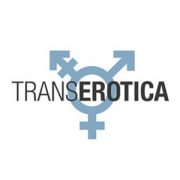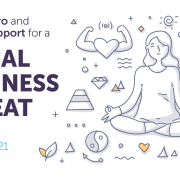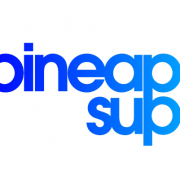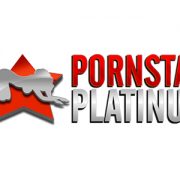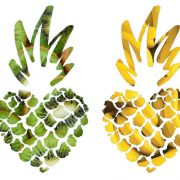With all the challenges we faced globally, 2020 was a pivotal year for the adult industry — and Pineapple Support. Our organisation saw immense growth and expanded its reach across the globe, fighting to meet the skyrocketing demand for services that came with the pandemic.
By the end of 2020, we had connected over 2,000 adult performers to mental health services, including free and low-cost, therapy, counseling and emotional support. It’s a sobering statistic of what a critical resource Pineapple Support has become for adult performers.
The pandemic increased isolation, fears over lost income, and added challenges for parents and others who normally shoot or cam from home. Common daily struggles such as depression, anxiety and trauma were exasperated during lockdowns, and systematic discrimination in the healthcare industry proved a hurdle for many. Thankfully, Pineapple Support could help.
Despite the financial challenges that the adult industry faced, in the past year we have:
- Connected over 1300 performers, producers and other members of the adult community with emotional support and therapy
- Provided over 6000 one-on-one therapy sessions to adult performers and producers
- Recruited more than 145 new therapists worldwide
- Added 29 new sponsors
- Hosted over 30 webinars and 100 support group meetings
- Spoken at or attended eight major industry events
- Provided active listening to 400 individuals in need of emotional support
COVID-19
In March, the novel coronavirus dominated the global stage and lockdowns began. We quickly began monthly webinars to help performers cope with unique stressors of pandemic. By April, support requests by performers had almost doubled, and by our second anniversary, we reached a new milestone — connecting over 1000 performers with mental health support.
COVID dominated our thoughts and plans for the rest of the year. With COVID in mind, we launched special programs, increased outreach and education, and worked to marshall all available resources for struggling performers.
WEBINARS AND SUPPORT GROUPS
We began 2020 with drop-in therapy at AVN, but by March we’d shifted our focus to virtual events to reach performers at home. The change was a challenge and a learning opportunity. While we couldn’t reach people in person, we could reach a potentially wider audience.
Some of our newly launched support groups addressed issues like grief, loss and trauma, while others focused on specific techniques like DBT and music therapy to equip performers with strategies to maintain positive mental health. We created specific support groups prioritizing the needs of BIPOC and LGBTQ+ performers, parents, and men. Support groups are a crucial way to build community — and lasting connections.
Meanwhile our webinars offered concentrated doses of knowledge. We launched an training session for suicide prevention and session on sex-positive parenting tips. In May, we partnered with Streammate on a three-day online wellness event with Streamate helping workers learn how to mitigate the stress and anxiety caused by the coronavirus pandemic. It was followed in June by a breathwork webinar sponsored by Pornhub and Modelhub, which offered tools for reducing stress, anxiety, depression.
Throughout the year, our webinars addressed issues addiction, racial trauma, sexual trauma, family stress and strategies for better mental health.
EVENTS
Industry Shows
We were lucky enough to attend AVN EXPO in person in January, where we hosted our annual drop-in therapy booths, TES Lisbon and XBIZ LA, where we gave presentations on mental health to industry influencers. We attended many of these, representing the organisation with booths at XBIZ Berlin (hosting a financial wellbeing workshop), XBIZ Miami (where we hosted a VIP support lounge) and YNOT Cammunity.
Pineapple Summit
In December, we hosted our annual Pineapple Mental Health Summit, focusing on topics like trauma, abuse, stalking and anxiety. The Summit, broadcast on Pornhub Live and sponsored by Pornhub and Modelhub, featured live webinars and panels with therapists and industry experts. The Summit was held in memory of Dr. Amie Harwick, a Pineapple Support therapist who lost her life tragically earlier in the year.
Miss Pineapple Pageant
In June, we partnered with Falcon and NakedSword to present the 2020 “Miss Pineapple” Pageant as a virtual fundraiser for Pineapple Support, inviting top gay porn stars to compete as drag queens for the title. We raised money and, more importantly, awareness, in the LGBTQ+ community.
Woman of the Year Award
I was proud to accept the Woman of the Year award at the 2020 XBIZ online industry award in January. The recognition fuelled my determination to continue to expand the support that we offer, as well as increasing our reach to support even more performers around the world.
ORGANIZATIONAL GROWTH
South American Expansion
In February, I visited Colombia to meet the Pineapple Support therapists at the WebCam Lab. During the year, our partnership with the WebCam Lab has helped connect over 325 performers with mental health services in Latin America. In response to the pandemic, we began offering virtual psychological support via Skype and WhatsApp to help performers mitigate the anxiety caused by COVID-19. In July this year, we added independent therapist Yiset Mosquera Moreno to the team to provide further support to Spanish-speaking performers in Latin America.
Sponsors
It’s thanks to our generous sponsors that we’re able to continue to do the good work that we do. Sponsors like Pornhub, Brazzers, Clips4Sale, Cam4, Kink.com, xHamster , Chaturbate, Adultwork, Streamate, SextPanther, Free Speech Coalition, PervOut Productions and NakedSword were exceptional in their commitment to our organization, and we would not be here without them. This year, we added 29 new sponsors including:
- NETbilling
- Vixen Media Group
- XloveCam
- MojoHost
- Porn Deals
- Pascal’s Sub Sluts
- Transerotica
- Adult Webmaster Net
- Porn Star Platinum
- Eplay
- Segpay
- The Adult Toy Shop
- Babestation
- Playboy
- JuicyAds
- AltPlayGround
- NMG Management
- #LetsDoeIt
- ImLive
- JuicyAds
- Flirt4Free
- Gamma Films
- Bathmate
- Erika Lust Films
- Rabbits Reviews
- TeamSkeet
- Fans
- Adult Site Broker

